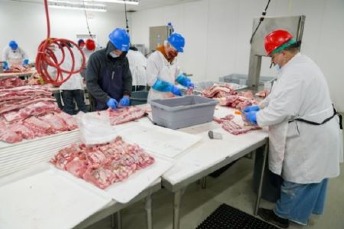Meaningful Work, Dirty work, and Workplace Spirituality
One-day seminar, Groningen. June 8th, 0930, Faculty of Religious Studies
Organization: Lena Höllisch & Jelle Wiering
Registration: j.o.wiering rug.nl
Free of charge, limited amount of participants possible. Registration mandatory.
Keynote speakers:
-
Evgenia Lysova, Vrije Universiteit Amsterdam (Meaningful work)
-
Mira Karjalainen, University of Helsinki (Workplace Spirituality)
-
‘Dirty Work, Clean Future Research group’ (see: https://www.unusualcollaborations.com/dirty-work-clean-future).
This one-day thematic seminar brings together three important branches in the study of work in order to better understand how individual interpretations of the meaning in work relate to societal and organizational interpretations of work. Drawing on the interdisciplinary theoretical concepts of Meaningful work, Dirty work, and Workplace Spirituality, the seminar engages with three different approaches to work. The interdisciplinary seminar will feature scholars from the fields of religious studies, organizational psychology, anthropology, organizational studies, geography, and sociology. The seminar is open for students, junior and senior scholars.

Meaningful Work
In the morning, the seminar will focus on the meaning in work. For the majority of people in the world, waking hours are spent working. Since such a large amount of our time is devoted to work, we deem it interesting if not necessary to explore how our need for meaning intertwines with our day-to-day activities. Today, the debates and theories that treat the interaction between the concept of meaning and work are ever-increasing in number, captured in concepts such as flow, callings, bullshit jobs, job satisfaction, meaningful work, job design/crafting, flourishing, unconditional basic income, and work engagement.

Dirty Work
However, this exercise of finding meaning becomes (even) more challenging in work that is stigmatized by society: finding meaning in a job that most people in society prefer not to do can be challenging. Yet, society’s dirty work has to be done in order for it to function properly. Our second session therefore focuses on the meaning of work: societal interpretations of work, and, in particular, social stigmatization of certain work. The concept of "dirty work", first introduced by Everette Hughes in 1958, serves to denote such kinds of work that can be seen as tainted or degrading by society. Such societal understandings are not without consequences: previous research on dirty work has indicated that workers doing the dirty work are struggling to negotiate their personal interpretations of their work with such social condemnation.

Workplace Spirituality
Finally, the seminar discusses the meaning at work through the notion of ‘Workplace Spirituality’. Organizations are increasingly naming authenticity and wellbeing as key personnel values and they are embracing all kinds of programs to facilitate these interests. Disseminating particular ways of understanding the meaning of work and the pivotal role of the own organization in that regard, such programs seek to influence employees’ struggle of reconciling the meaning in work with the meaning of work. However, the humanistic and therapeutic approaches that these programs propose have, in turn, been criticized for being part of a ‘soft capitalism’ discourse that financially benefits such organizations themselves.
Investigating the meaning of work (the moral and social value of (various kinds of) work);
the meaning in work (more individually-oriented notions of meaningful work) and the meaning at work (organizational contexts and the meaningfulness of tasks and roles); this seminar seeks to bring together pieces of the same puzzle. It postulates that, by bringing together these three different perspectives, we will gain new insights into the relationships between the different meanings of meaning circulating at work.
| Last modified: | 15 May 2023 12.34 p.m. |
